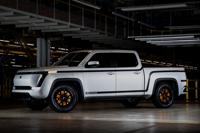
In 2020 Lordstown Motors revealed its strictly-for-business electric pickup that will be built at a former GM factory in Ohio.
2020 was tough on many industries, but the auto industry actually saw some bright spots.
Despite having to shut down production for weeks at a time, some factories were able to pivot to make personal protective equipment and other medical supplies just when the country needed it most.
Several automakers were still able to reveal some of their most important product launches in years, including General Motors' new GMC Hummer EV and Ford's Bronco.
And certain major trends emerged, like a long-awaited embrace of electric trucks and a return to the extra-rugged SUV.
Another big trend: shopping for a car from the COVID-free safety of your home.
Here's a look at some of the biggest trends that shaped the industry in 2020.
Trucks go electric
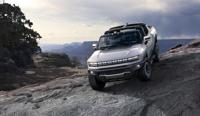
The GMC Hummer EV is an all-electric off-road pickup.
Over the course of this year, one thing was clear: America's obsession with pickup trucks is far from over.
But there was also another interesting twist. New advances in battery technology have made it possible to create electric versions of these trucks without sacrificing power and adding too much to the price, meaning the once gas-guzzling behemoths have become much more eco-friendly.
Ford unveiled a new hybrid F-150, the first full-hybrid pickup in the U.S. market. It's a precursor to the upcoming fully electric F-150.
We didn't just see electric versions of already-existing pickup trucks. In January, General Motors was teasing Hummer fans with an ad during the Super Bowl about its upcoming GMC Hummer EV, a hyper-aggressive electric pickup truck.
And then there were a slew of other notable entrants to the electric truck market: Lordstown Motors revealed its strictly-for-business electric pickup that will be built at a former GM factory in Ohio. Fisker, best known for its planned Ocean electric SUV, dropped hints late this year that it's looking to make a pickup, too. Founder Henrik Fisker even tweeted an image of a pickup bed with the name "Alaska" written on it.
I predict we will launch a range of vehicles faster than any other pure EV company has ever done! In less than 1/2 the time!With radical Design, UI & customer UX! Ohh; & We hired our terrific VP of IR from Wolf research! He is doing an amazing job! #fisker #love #EVs #integraty pic.twitter.com/ITsdNLV7Fr
— Henrik Fisker (@henrikfisker) December 10, 2020
Rivian, which had first unveiled its truck, the R1T, back in 2016, finally revealed the truck's pricing and details about its capabilities.
All these trucks will eventually compete against Tesla's radical-looking Cybertruck, which was revealed late in 2019.
One reason electric trucks are becoming so popular is that consumers are starting to trust the technology, said Kelley Blue Book associate editor Allyson Haywood.
"When you're talking about an electric truck, there are certain expectations that a truck buyer has, whether it's payload capacity, towing capacity, off-road capability or some combination of those," she said. "If they have concerns that those battery packs are not going to survive, you're not going to have that range to do what you need that truck to do, they're not going to be confident buying an electric truck."
It also helps that a lot of truck buyers are business owners, she said, who will look at the fuel and maintenance cost savings of an electric truck. (Electric vehicles cost less to maintain because they have fewer moving parts, don't require oil changes and don't wear out their brakes as quickly as gasoline or diesel vehicles. Electricity also tends to cost less than gasoline on a per-mile basis.)
SUVs go back to being tough

The Ford Bronco Sport is being marketed as the perfect vehicle for campers and hikers.
Crossover SUVs, often just large hatchback cars with raised suspension, have been wildly popular for years. Auto showrooms are overrun with them. But in 2020, the auto industry seemed to rediscover SUVs and trucks that were built more for rocky trails than paved parking lots.
Ford reintroduced its famed Bronco, responding to years of demand for the long-out-of-production classic model. A direct competitor to the Jeep Wrangler, the Bronco has a removable top and is intended for rugged off-road use. The Bronco Sport is a slightly smaller SUV that's intended for lighter — but still pretty serious — off-road use.
General Motors' first fully electric truck, the GMC Hummer EV, is also part of this trend. It's a 1,000-horsepower all-wheel-drive truck with four-wheel steering that can even drive diagonally if needed.
Not all the new SUVs are really that tough, though. Many SUV buyers really don't need serious off-road capability — even if they do venture out to a campsite or a trailhead every once in a while.
That's where SUVs like the new Chevrolet Trailblazer come in. It's got slightly rugged looks, and it's available in all-wheel-drive. Still, even Trailblazer Activ, the most capable version, is intended more for dirt roads than no roads.
That woodsy vibe is also why Honda redesigned its Ridgeline pickup to look more rugged, too. And Honda plans to give the same treatment for its Pilot and Passport SUVs as part of an effort to let customers know that, yes, Honda's SUVs and trucks can get dirty, too.
This trend comes, coincidentally, just as coronavirus-rattled car shoppers are itching to get outdoors and away from people, said Haywood. Really, she said, it's mostly a response to the near-ubiquity of crossovers that look like tall cars.
"I do think that when people buy a vehicle, they like to have some sense of individuality," she said.
Car shopping moves online
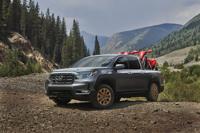
The 2021 Honda Ridgeline was redesigned to give it a more rugged appearance.
One thing that can be attributed to the pandemic was a surge in online car shopping. This was the year that buying cars, just like buying everything else, went online in a big way.
Used car shopping website Carvana sold 39% more cars in the third quarter of 2020 than in 2019. Vroom, another online used car seller, sold 59% more cars in that same period.
These companies' sales were already rising before, but "the pandemic has just accelerated all of that, maybe to the tune of several years,'' said Carvana CEO Ernest Garcia.
At the start of 2020, JD Power began surveying new car shoppers about their online experiences. Between January and April, when lockdowns were in place in much of the United States, the number of car shoppers who selected a vehicle online increased by 63%, while the percentage of shoppers getting credit approval online more than doubled.
Online car shopping has far from taken over the new car shopping business, though. Even with those big shifts online, paperwork-intensive parts of the process are, in particular, still being done mostly in person.
For instance, despite that big increase, only 20% of new car shoppers got credit approval online in April, according to JD Power's data. And only 15% of car shoppers got an appraised value for their trade-in vehicle online.
Improved digital processes for those sorts of things will help, said Christopher Sutton, JD Power's vice president for automotive retail, as will more marketing of online systems by dealers and automakers.
"One thing that we did see that, I think was very encouraging, is that the customers who went through the digital experience did report a better experience on balance," he said.
Rust in peace: These cars aren't returning in 2021
Buick Regal
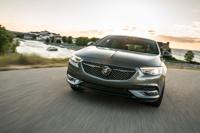
In the pantheon of cool Buick names like Invicta and Electra, this Opel import with the blue-hair name was doomed from the start, although its remarkably unremarkable personality didn't help.
Acura RLX
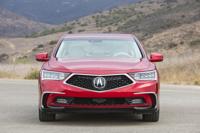
A perfectly anonymous car with an equally anonymous name, the RLX is a stark reminder of how far Acura's product development and marketing has fallen from the excellence established by the Legend.
Alfa Romeo 4C
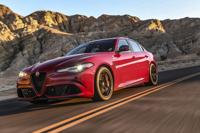
Now that America has become a nation of SUV-loving truck drivers, where dreary practicality triumphs over sheer fun, pure sports cars like the fun-to-drive 4C are sadly overlooked also-rans.
BMW i8
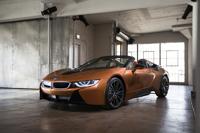
You'd think a gas-electric hybrid as attractive as the BMW i8, with handling to match, would succeed. But $147,500 for a car powered by the Mini's three-cylinder engine? Really?
Chevrolet Impala
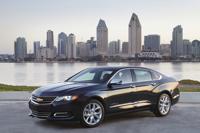
While car buyers think nothing of buying enormous SUVs, they think twice about buying a large car, even one as good as the Impala. That said, a more inspired design would have helped.
Cadillac CT6
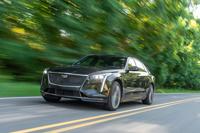
With a name only a lifeless marketer would love, this flagship sedan was sabotaged by tepid styling that lacked the Escalade's unmitigated swagger, and a cabin far too cheap for its station.
Chevrolet Sonic
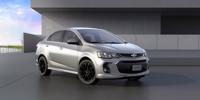
With exorbitant gasoline prices now a distant memory, this funky and fun little hatchback lost its raison d'etre. Its platform lives on, however, in the Chevrolet Trax and Buick Encore.
Ford Fusion
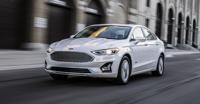
Ford may blame lack of buyer interest with killing the Fusion. The absence of any meaningful update for years has much more to do with it. A sad, self-inflicted end to a well-respected and popular car.
Dodge Grand Caravan
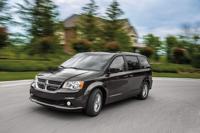
Cheap to buy and very practical, but the end has come for this minivan after 35 years as Dodge focuses on performance-oriented products. Its replacement, the Chrysler Voyager, is now on sale.
Dodge Journey
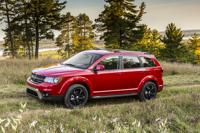
Outclassed in every respect except for its low price and archaic Ultradrive four-speed automatic transmission, this sad relic of the DaimlerChrysler era is thankfully seeing its journey come to an end.
Honda Fit
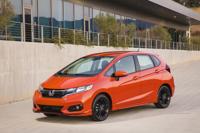
Its beauty was its utility, which was far larger than its size suggested thanks to the flexibility of its seating system. And it was unexpectedly fun to drive, something rarely said of cheap utilitarian cars.
Honda Civic Coupe
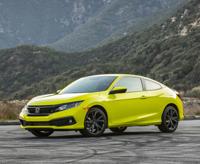
While the whole sport compact scene grew out of cars like the Civic Coupe, its time has come and gone, as buyers are unwilling to put up with an iota of inconvenience in the name of fashion.
Jaguar XE

Like the X-Type before it, this entry-level British sports sedan never possessed the requisite grace, pace and space needed to steal buyers away from the BMW 3-Series.
Lincoln Continental
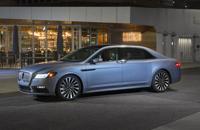
Developed using a front-wheel-drive Ford Fusion platform to save money and lacking the requisite aura of the concept car that foreshadowed it. The Continental's fate was sealed from the start.
Lincoln MKZ
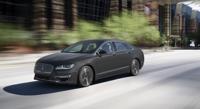
This gussied-up Ford Fusion with a crummy name was bound to exit once the Fusion did. Aside from seniors who liked nabbing a Lincoln at a low price, the MKZ was never special enough.
Lexus GS
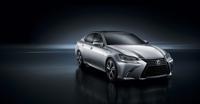
Always the middle child, never as popular as the Lexus LS or ES sedans. Toyota President Akio Toyoda wanted to kill the GS in 2011. Executives saved the car, but sales never improved. Now, Akio gets his wish.
Jaguar XF Sportbrake
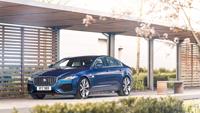
If you thought that the idea of a Jaguar station wagon seemed a bit off, you're not alone, even though this was a fabulously fun-to-drive alternative to the overwhelming overabundance of SUVs.
Mercedes-Benz SL
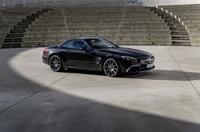
Mercedes-Benz has killed the two-seat SL-Class, but online reports speculate that the renowned roadster could return as a 2+2 for 2022, built by Mercedes-AMG.
Mercedes-Benz SLC
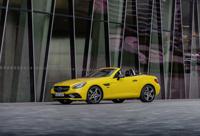
With buyers ignoring everything except SUVs, this cut-rate convertible is circling the block for the last time, still in need of the upscale elan, space and build quality that its larger siblings possess.
Toyota Yaris
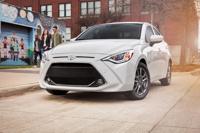
Americans hate subcompacts, especially when gas prices are low. So even though this disguised rendition of the Mazda2 is fun to drive, downsized cars are DOA.
"auto" - Google News
December 30, 2020 at 07:30AM
https://ift.tt/2KCSOLO
2020 auto trends: Online buying, electric trucks, off-road SUVs - Auburn Citizen
"auto" - Google News
https://ift.tt/2Xb9Q5a
Shoes Man Tutorial
Pos News Update
Meme Update
Korean Entertainment News
Japan News Update
No comments:
Post a Comment